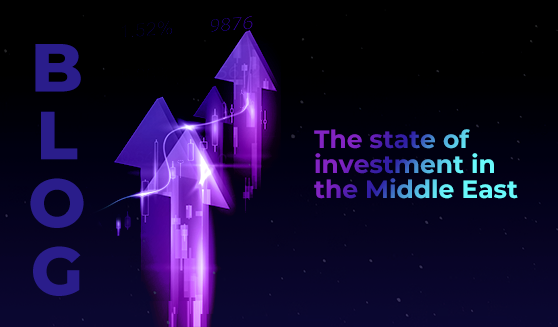
LEAP happens in Riyadh, Saudi Arabia. The hospitality is incredible, the setting is immensely inspiring – but there’s a more strategic reason for locating one of the biggest tech events in the world here in KSA. As a country driving economic transformation, in a region that’s fast growing its investments ecosystem, this is a place where tech companies can thrive – and contribute to a stronger future for the local market and the international tech industry.
Foreign direct investment (FDI) inflows to the Middle East and North Africa (MENA) region have been trending upwards since the late 1990s, although there have been volatile periods. The net inflow across the region was USD $79.33 billion in 2021.
It’s difficult to use region-wide figures to summarise the state of investment, because it’s complex and varies across countries. While some countries have seen significant FDI, others are facing economic challenges.
But the region’s sovereign wealth funds have become more and more sophisticated and strategic in their investments, and there’s a keen emphasis on investing in transformation – to prepare for the future with a more diverse and sustainable economy.
The 10 largest sovereign wealth funds in the Gulf region manage nearly $4 trillion in total, according to the Sovereign Wealth Fund Institute. That’s more than the GDP of countries including France and the UK – and it doesn’t include any private money.
The countries pulling Foreign Direct Investment
According to Investment Monitor, the UAE has consistently accounted for over 40% of the FDI projects into the Middle East since 2003. And FDI has increased over the last few years – peaking at 445 projects in 2019. In 2020, the UAE took its largest recorded share of the region’s FDI, at 62%; and that was in spite of lower project numbers than in 2019.
Thanks to a growing tech scene, Israel is also becoming a major FDI location in the region since the COVID-19 pandemic. The country recorded 78 FDI projects in 2019, and in 2020 it recorded the highest number of startups per capita in the Middle East; with the encouragement of tech innovation and R&D investment baked into its national laws.
The 2023 FDI reviews by White & Case show that Bahrain has revised its investment legislation to ease the entry to market for foreign investors – preparing for an increase in regional investment attention over the coming years. And Iran is another nation to watch – receiving a net inflow of $1.4 billion in FDI in 2020, according to the World Bank.
What about Saudi Arabia?
It’s LEAP’s beautiful home country. The place where the magic happens. And it’s also a nation of growing interest to investors with an eye on the future.
White & Case’s reviews noted that Saudi Arabia is host to an influx of institutional investors and innovative startups – and this level of sophistication is being noticed by major global investors.
KSA has seen a surge in FDI in recent years. The Investment Ministry reported FDI inflows of SAR 7.2bn (USD $1.9 billion) in Q3 of 2022 – a growth of 10.7% over the same period in the previous year.
In October 2021, the country announced its National Investment Strategy, with plans for sectors including manufacturing, renewable energy, digital infrastructure, tourism, transport and logistics, and health care. The strategy aims to raise the private sector contribution to 65% of total GDP – and increase FDI to 5.7% of total GDP. In real money, the government aims to draw in $100 billion in annual FDI by 2030.
We’re here for a reason. We’re dedicated to being a part of Saudi Arabia’s transformation – and it’s a real privilege to witness the world’s best technology minds get together in Riyadh to make it all happen.








